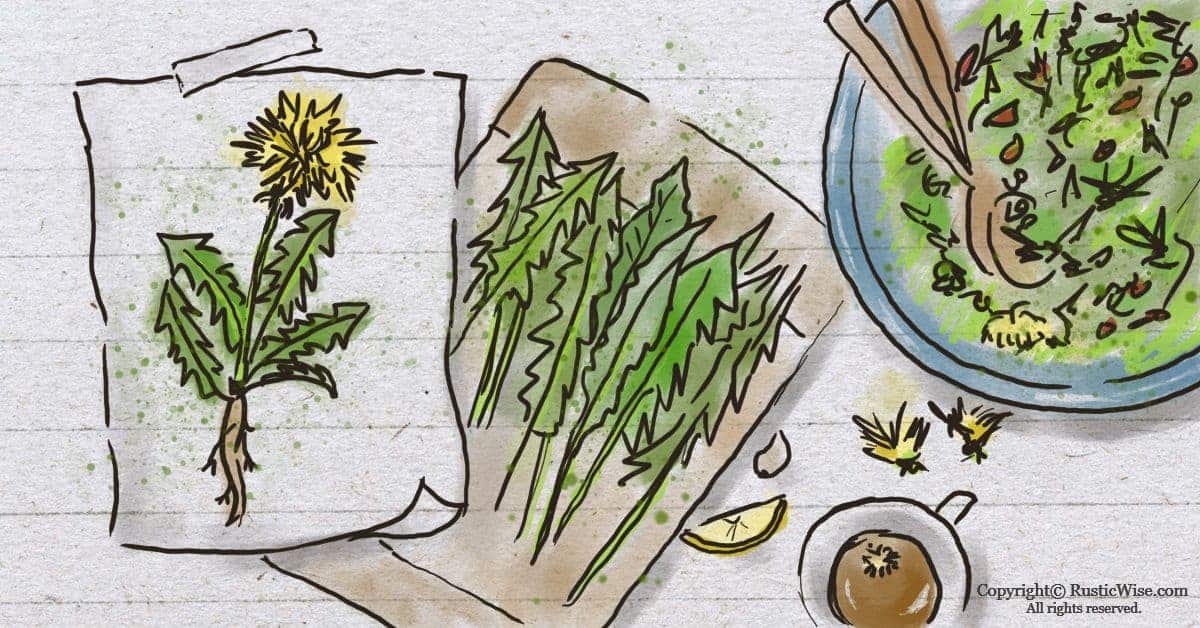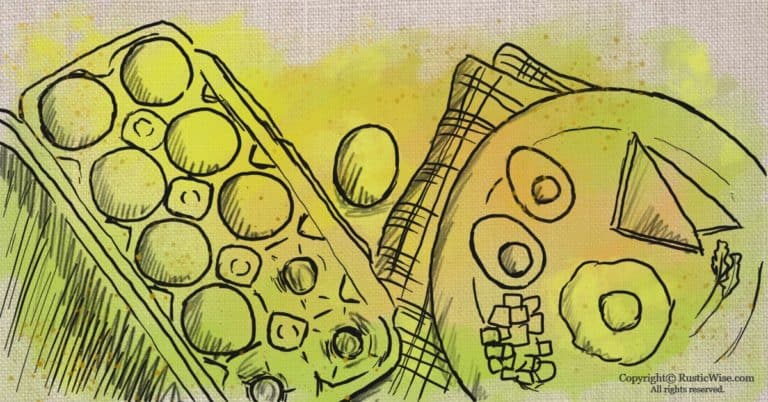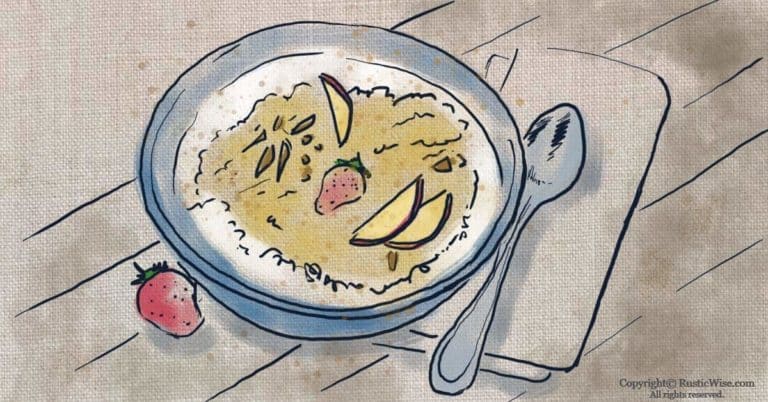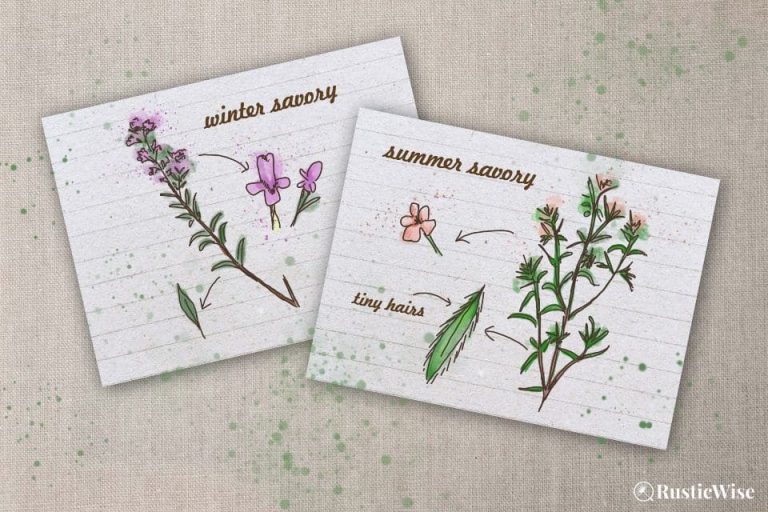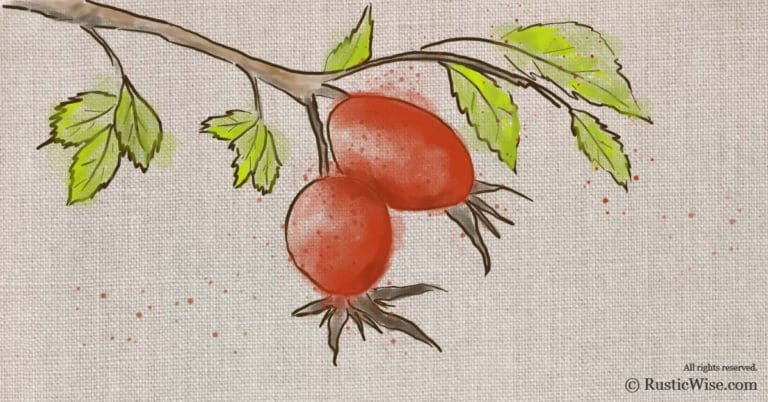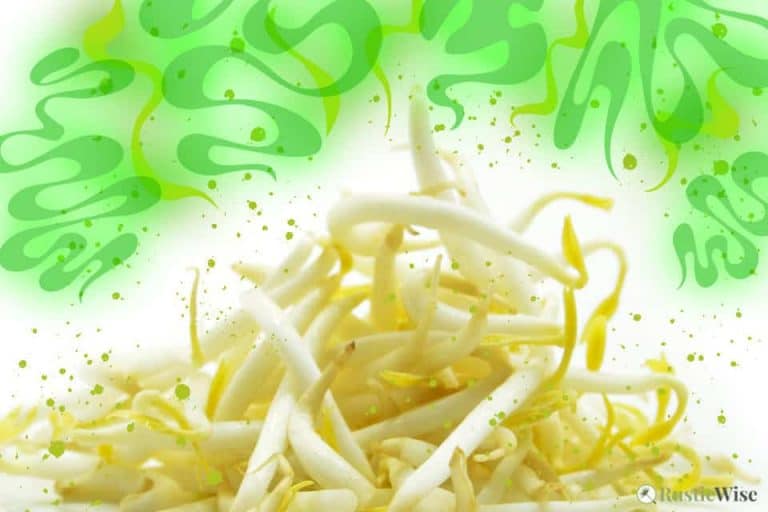Cooking with Dandelions: How to Forage + 2 Ways to Improve the Taste of Dandelion Greens
It never ceases to amaze me. Year after year following the harsh winter, yellow patches of dandelions pop up all over our yard. Even after we moved houses, the dandelions followed us.
They must really like us.
I must admit that at first, the so-called “weeds” enraged me. No matter how many hours I spent tearing them out, they’d pop up again like a never-ending game of Whac-A-Mole.
Why don’t you spray them, people would say. Well, I’m reluctant to use chemicals because we have kids and pets that play on our lawn. Any natural solutions I’ve tried have had dismal results.
So the dandelions stayed. And eventually over the years I’ve made peace with them. I’ve even come to like them.
I know that dandelions have long been used for medicinal and culinary purposes, but I was a bit skeptical at first. It’s hard to shift your thinking of this plant from “invasive weed” to coveted culinary ingredient.
Now when dandelion season rolls around, I look forward to a cup of delicious dandelion tea, or sauteing the greens. Cooking with dandelions isn’t as tricky as you might think. Isn’t it great to think that we have a source of free and nutritious food right under our feet?
Cooking with dandelions is an easy and nutritious way to make use of an edible plant you may have growing in your backyard. From flower to root, the entire plant is edible. Dandelion greens are packed with vitamins A and K and can be used raw or cooked.
Can you really eat dandelion greens from your yard?
Yes, your yard is one of the best places to pick dandelions, assuming you haven’t chemically-treated your lawn. Dandelions are edible from flower to root. The flowers and leaves can be eaten raw or cooked, while the roots are often cooked, or dried.
If you don’t have any dandelions in your yard, you can also find dandelion greens in farmer’s markets or specialty food stores. Dandelion teas are readily available online or in the tea section of grocery stores.
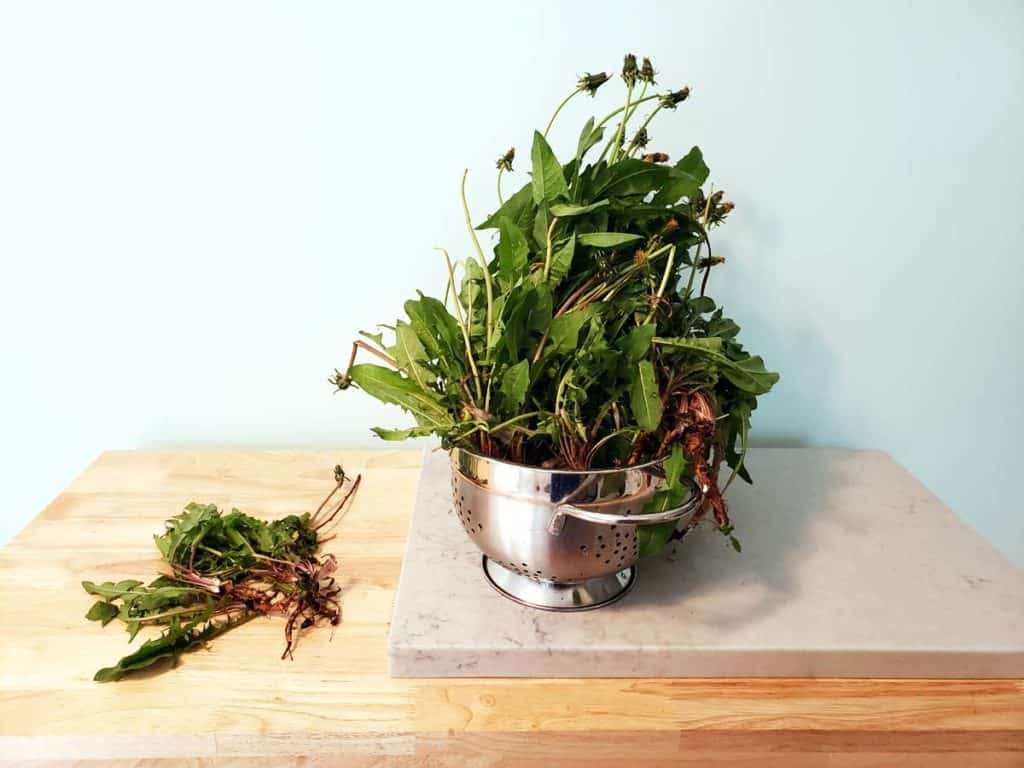
Credit: RusticWise
What does dandelion taste like?
Each part of the plant has its own unique flavor. Dandelion flowers are slightly sweet and taste of honey. If you’ve ever had a cup of chrysanthemum tea, dandelion flower tea tastes similar.
The dandelion leaves are slightly bitter and remind me of arugula. The roots are dried, chopped, and ground up to make a coffee-like alternative. It’s a full-bodied, chocolatey brew with diuretic properties, so only drink a small amount.
Health benefits of dandelions
While people rave about spinach and kale as superfoods, dandelion greens deserve a place on the healthy foods pantheon too.
Dandelion leaves are a rich source of dietary fiber, and are also low in saturated fat and cholesterol. They also contain:
- Vitamin A
- Vitamin B6
- Vitamin C
- Vitamin E
- Vitamin K
- Thiamine
- Riboflavin
- Iron
- Calcium
- Protein
- Potassium
- Manganese
Just one cup of raw dandelion greens contains a whopping 112 percent DV of Vitamin A, and 535 percent DV of Vitamin K.
Foraging and harvesting dandelions
Since dandelions are such prolific seeders, they’re found all around us—along hiking trails, fields and meadows, areas of disturbed soil (such as near sidewalks and roads), and in your own backyard.
Whenever you’re foraging for edible plants, please only harvest in areas you’re familiar with. Make sure the fields are free of chemicals, and avoid picking plants that are too close to streets or roadways to avoid contaminants.
Dandelions are fairly easy to identify with their bright yellow flowers and jagged green leaves. In French, dandelions are known as dent-de-lion which means “lion’s tooth.”
Springtime is the best time to harvest dandelion leaves from young plants. As the weeks pass, the leaves turn bitter-tasting. The best leaves to pick are from the plants that have not yet flowered (2).
Wake up early in the morning to pluck the flower heads of dandelions in spring and summer. They come off easily from the stem, or you could use a pair of scissors to cut them.
Dandelion roots run deep (as I’m sure you know from trying to pull them out of your lawn). Take a small garden trowel, or a weeder to dig up the roots. Spring or fall is a good time to dig up dandelion roots right after it has rained.
How to clean dandelions
Treat dandelions like any other fresh produce and give them a good rinse with cold water before using. Wash greens in a colander.
- Flowers: Rinse the dandelion flowers in cold water to remove any insects. Soaking them in a bowl filled with water results in soggy and wilted looking flowers (as I’ve sadly learned from experience).
- Leaves: Place in a colander and rinse just as any other leafy green.
- Roots: Use a vegetable or potato brush to gently scrub off dirt.
How to make dandelion greens taste better
The one thing about eating dandelions that people often complain about is the sometimes bitter taste of the leaves.
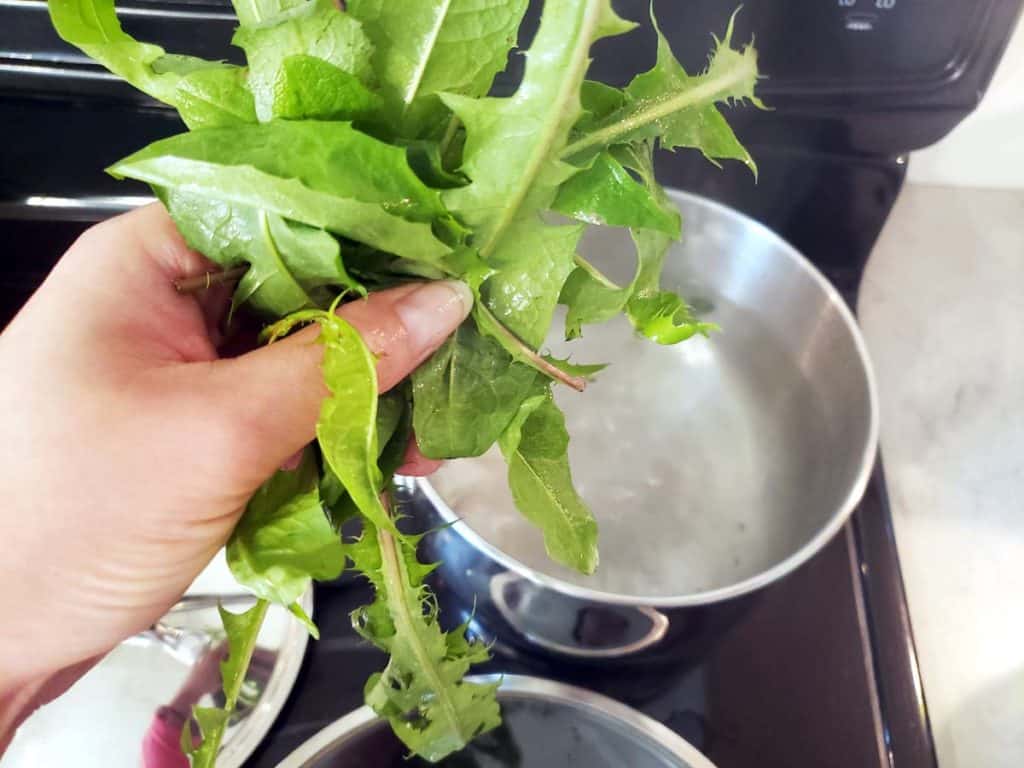
Credit: RusticWise
The taste of the plant is greatly affected by the growing conditions, environment, and the time of harvesting. As mentioned above, it’s best to harvest tender dandelion greens from young plants in the spring. But if you’ve happened to have a batch of bitter-tasting dandelion leaves, no worries. Here are a couple ways to improve the flavor of greens:
- Boiling: Heat a small pot of water to boiling. Let dandelion greens boil for 3 to 5 minutes, then drain. I’ve found that boiling the greens for a short period of time is enough to remove the bitterness. The boiled greens tasted similar to spinach.
- Sauteing: Heat a small amount of vegetable oil in a wok or frying pan. Cook the dandelion greens with garlic and lemon juice. This method resulted in greens similar to stir fry. I also added a splash of soy sauce.
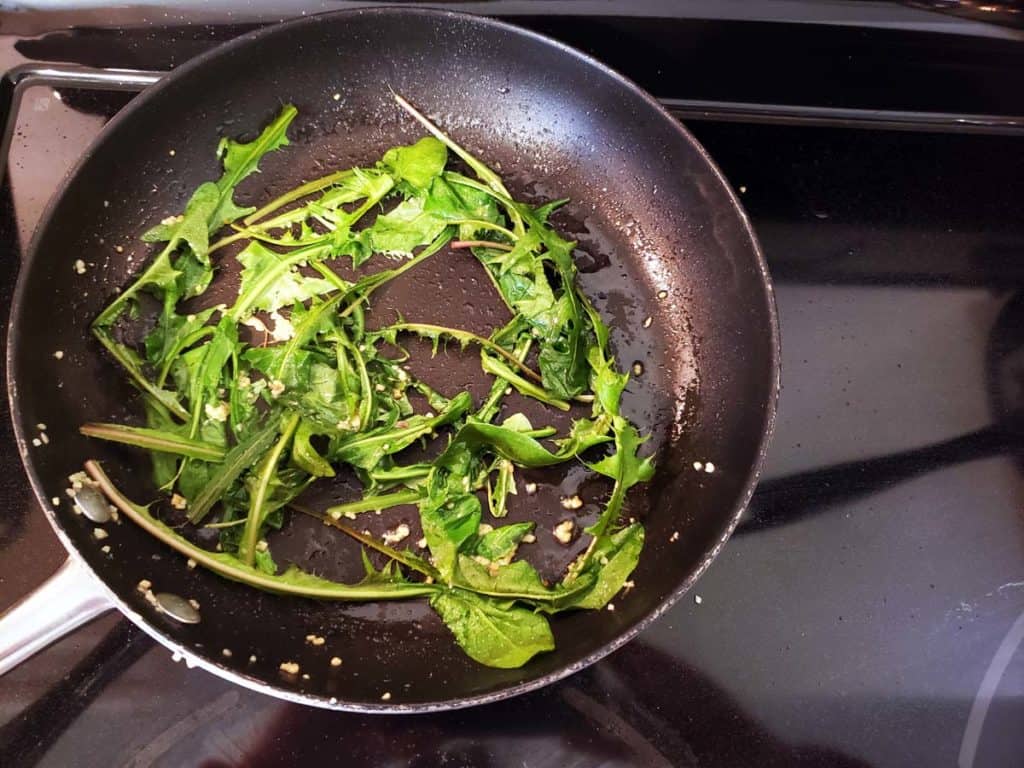
Credit: RusticWise
The taste test
I tried both methods: sautéing and boiling dandelion greens. Afterwards, I served them to a panel of picky judges (my two kids and husband). The verdict: my kids seemed to like the taste of boiled dandelions better, while my husband was impartial.
The boiled dandelion greens had a really mild taste, very similar to spinach. The sautéed greens still had a hint of bitterness to them, but still pretty tasty.
I think I might have gone a bit heavy on the garlic with the sautéed version…
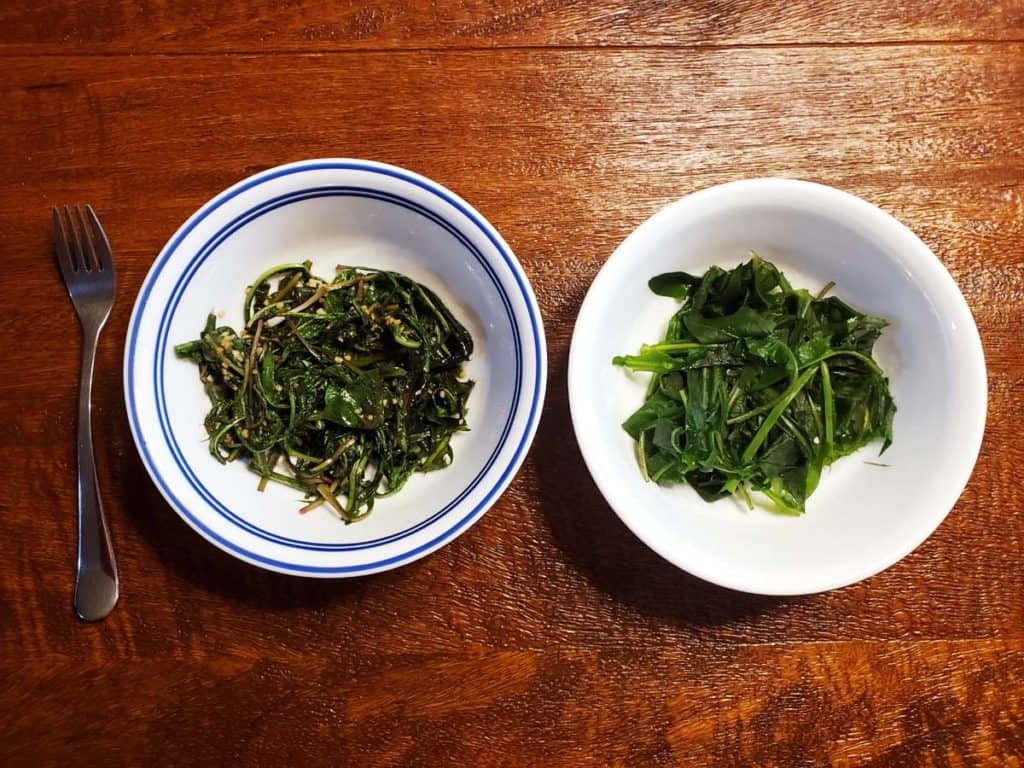
Credit: RusticWise
Easy ways to cook with dandelions
There are so many ways to use a dandelion’s flowers, leaves, and roots.
- Flowers: The slight sweetness of the flowers makes it a good choice to use for making dandelion tea, jelly, syrup, and fritters.
- Leaves: Use them raw or cooked. Raw leaves from tender young plants are great for making smoothies, juices, and chopping up to add to salads.
- Roots: Cook them or dry them. Dandelion roots can be added to soups and stews. Dried dandelion roots can also be used for brewing dandelion coffee [insert link to post about Brewing Dandelion Root Coffee].
Cooking with dandelions: a recipe roundup
Dandelion leaves, garlic, pine nuts, and grated Parmesan combine to make a delicious pesto. Spread over pizza, pasta, or other savory dishes (via David Lebovitz).
Bacon, maple syrup and eggs take the edge off of raw dandelion leaves (via Food52).
The simple goodness of dandelion blossoms shines in this jelly recipe (via Taste of Home).
Start the day with a healthy green juice with dandelion greens, green apple, celery, and cucumber (via Joe Cross).
A hearty soup featuring dandelion greens, carrots and time-saving frozen cheese tortellini (via Swirls of Flavor).
For the love of bees…
A parting note about rethinking the role of dandelions in our yards…
From weed to coveted culinary ingredient, let’s also remember that dandelions serve a vital role in the natural world as both a source of pollen and nectar for bees. So before you’re tempted to mow them down, at least let them stick around during the spring months to help out the bees.
And maybe you’ll take the first brave step towards cooking with dandelions, or at least taking a taste test to see what the fuss is all about.
👉 If you like this post, see our Timeless Guide To Foraging for Wild Food. 🌿
Would you like more timeless tips via email?
Fun tips to help you live an independent, self-sustaining lifestyle. Opt-out at any time.


References:
- SELF Nutrition Data, Dandelion greens, raw Nutrition Facts & Calories, https://nutritiondata.self.com/facts/vegetables-and-vegetable-products/2441/2. Accessed June 2020.
- Monger, Karen (2015). Adventures in Edible Plant Foraging: Finding, Identifying, Harvesting, and Preparing Native and Invasive Wild Plants. Skyhorse Publishing. ISBN 978-1-63450-407-2.

Author: Theresa Tesolin
Theresa is co-founder of RusticWise. She helps people unleash their inner DIY spirit by encouraging them to get dirty and make or grow something from scratch.

